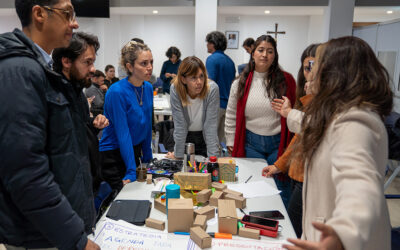In an uninterrupted dialogue with people without any religious affiliation, Chiara Lubich, in 1995, finds herself explaining why the Focolare Movement would lose its identity without the non-believers.
«This is absolutely true! As a Movement, as a new community that has come to life in the Church, we have a universal vocation.
Therefore, our motto is: “That all may be one.” Now, this “all” includes you too. We can’t do without you because you are included in that “all,” otherwise we would be cutting away or excluding half the world, or at least a third of the world. Instead, we say: “That all may be one.”
Of course, we must “be one” in so far as it is possible. We will be one in values, we will be one in other ideas, we will be one in something actual».
Chiara Lubich to friends without any religious affiliation, Loppiano, May 7, 1995
Published in DiaLogos 02, CNx, September 2012




0 Comments